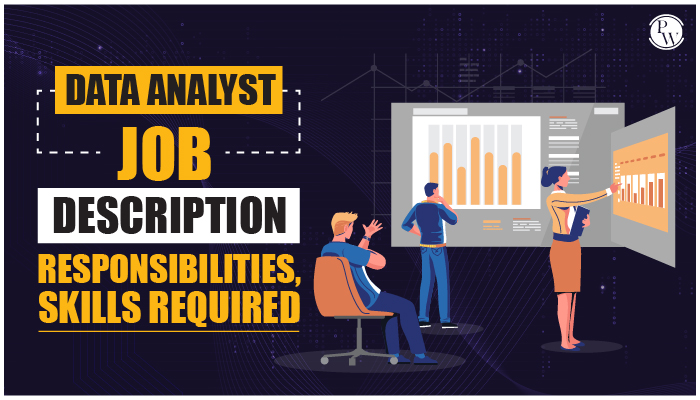Data has revolutionized how we interact with machines and communicate with others in the last ten years. Approximately 2.5 quintillion of data are generated daily globally. This vast amount of data encompasses various forms, such as YouTube videos, emails, text messages, and multimedia messages.
Both small and large enterprises now experience a massive influx of data. However, the true value of this data lies in the insights that businesses can extract from it. That’s where data analysts come into play. Their role involves analyzing and interpreting statistical data, transforming it into valuable and actionable insights that can support real-time decision-making for businesses.
Recommended Courses :
- Decode Data Science with ML 1.0
- Decode Full Stack Web Dev 1.0
- Decode JAVA with DSA 1.0
- System Design
What is Data Analysis?
Data analysis refers to the systematic process of cleaning, analyzing, interpreting, and presenting data using various approaches and tools for business intelligence. Through data analysis, you gain the ability to unearth valuable insights that can guide you toward more informed and successful decision-making. This involves utilizing different techniques and tools to transform raw data into meaningful statistics, information, and explanations. By delving into data analysis, you can unlock the true potential of your data and harness its power to drive positive outcomes for your business.
Also read: Data Analysis: Importance, Types, Methods of Data Analytics
What does a Data Analyst do?
The role of a data analyst encompasses a range of responsibilities that contribute to the entire data analysis lifecycle. This includes conducting a comprehensive analysis from the initial stage of gathering requirements to the final design implementation stage.
Data analysts are tasked with developing analysis and reporting capabilities, enabling them to extract meaningful insights from the data they work with. They play a crucial role in monitoring performance and implementing quality control plans to identify areas for improvement.
By fulfilling these responsibilities, data analysts contribute to effectively utilizing data and driving continuous enhancements in data analysis processes.
Types Of Data Analyst
In the modern world, data analytics holds the key to organizational success. By effectively analyzing data and leveraging its insights to enhance business operations, an organization can experience significant growth.
Data analytics encompasses various types, each serving a unique purpose. In this article, we will delve into the four primary types of data analytics, shedding light on their distinct methodologies and applications.
Understanding these different approaches to data analysis will empower businesses to make informed decisions and ensure their success in today’s competitive landscape.
- Business Intelligence Analyst
- Operations Research Analyst
- Medical and Health care Analyst
- Market Research Analyst
- Business Analyst
Also read: Top 10 Data Analytics Trends to Watch Out for in 2024
Data Analyst Job Description: Roles and Responsibilities
As a data analyst, your role involves interpreting data, analyzing results using statistical techniques, and delivering regular reports. You also contribute to developing and implementing databases, data collection systems, and analytics strategies to optimize statistical efficiency and maintain data quality.
Acquiring data from various primary and secondary sources and ensuring the accuracy and integrity of databases are crucial aspects of your work. One of your key responsibilities is identifying, analyzing, and interpreting trends or patterns within complex data sets. This entails filtering and “cleaning” data by carefully reviewing computer reports, printouts, and performance indicators to identify and address code-related issues.
Collaborating with management is essential to prioritize both business and information needs. By understanding the goals and objectives of the organization, you can align your data analysis efforts accordingly.
Moreover, as a data analyst, you constantly seek new process improvement opportunities. By actively identifying areas where existing processes can be enhanced, you contribute to the overall efficiency and effectiveness of the organization.
Key Responsibilities of a Data Analyst
- Utilizing automated tools to extract data from primary and secondary sources
- Identifying and fixing coding errors and corrupted data
- Developing and maintaining databases, ensuring data is organized in a user-friendly format
- Analyzing data to assess its quality and derive meaningful insights
- Reviewing reports and performance indicators to filter and correct code problem
- Using statistical tools to identify, analyze, and interpret patterns and trends in complex data sets for diagnostic and predictive purposes
- Assigning numerical values to essential business functions to enable performance assessment and comparison over time
- Analyzing local, national, and global trends impacting the organization and its industry.
- Preparing reports for management, highlighting trends, patterns, and predictions based on relevant data.
- Collaborating with programmers, engineers, and management to identify process improvement opportunities, propose system modifications, and devise data governance strategies
- Creating comprehensive analysis reports gives stakeholders a clear understanding of the data analysis steps and empowers them to make important decisions based on factual information and trends.
Also read: How to Become a Data Analyst in 2023?
Skills Required to Become a Data Analyst
- Strong mathematical skills are essential for collecting, measuring, organizing, and analyzing data.
- Proficiency in SQL, R, Oracle, Python, and other programming languages is necessary.
- Technical expertise in data models, database design development, segmentation, and data mining techniques is required.
- Experience with reporting packages, including databases, business objects, and programming languages like XML, ETL, or JavaScript frameworks, is beneficial.
- A deep understanding of statistical packages and statistical methods used for analyzing datasets is important.
- Familiarity with data processing platforms such as Apache Spark and Hadoop is valuable.
- Knowledge of data visualization software like Qlik and Tableau is advantageous.
- The ability to apply and create accurate algorithms for datasets to identify solutions is crucial.
- Strong problem-solving skills are necessary for data analysis tasks.
- Attention to detail is important to ensure data accuracy.
- Proficiency in report writing, creating presentations, and querying is essential.
- Collaboration and teamwork abilities are valuable for working effectively in a team setting.
- Strong written and verbal communication skills are necessary for conveying findings and insights.
- Industry experience specific to data analysis is beneficial for understanding the context and requirements of data analysis in a particular industry.
Also read: Evaluating Data Analyst Course Fees: Budgeting for Education
FAQs
What is the average salary of a Data Analyst in India?
On average, a data analyst in India can earn a salary ranging from ₹4,00,000 to ₹12,00,000 per year.
What are the top companies hiring Data analysts?
Here are some renowned companies that have been known to hire data analysts:
Google
Amazon
Microsoft
Facebook
Apple
IBM
Uber
Airbnb
Netflix
LinkedIn
What makes a good Data Analyst?
A good Data Analyst is inquisitive, strategy-oriented, and can think outside the box for innovative solutions. They should be able to operate systematically and sustainably and have excellent communication skills.
What tools do data analysts use?
SQL
Microsoft Excel
SPSS and VBA
R
Tableau
Microsoft Power BI
Do you find it hard to be a data analyst?
Data analysis's not a difficult and easy job, but one that consists of both. The hard part is understanding languages like Python and tools Excel and Tableau.






